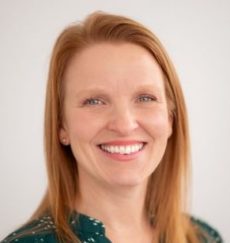
For anyone who thinks classic literature and caregiving have no overlap, I present for your consideration that 1866 great, “Crime and Punishment.”
Back in high school, the book’s 700 or so pages and stodgy translation challenged even this avid reader. Yet, despite a slow start, it ultimately became one of my all-time favorites.
That’s because our usually bubbly English teacher took us to the dark side with this one. She challenged us to think a bit like Raskolnikov — starving and desperate enough to kill as a means to survival — and to question how we’d react given his life.
Would we steal bread to feed our children? How about drugs from a pharmacy that only the insured could afford? If our child or parent were dying, would we kill the pharmacist to get our hands on that life-saving medication? (No offense intended, pharmacists.)
We debated with the righteous indignation you’d expect of a bunch of 17- and 18-year olds who know nothing of the world or how unprepared we really are when it comes to life’s most difficult choices. Ethical quandaries aside, regret and guilt are decidedly complex, adult emotions.
Over the last year, skilled nursing providers have faced incredible moral dilemmas themselves, with impossible decisions leading to even more impossible questions about what might have been.
Without knowing what the next day would bring, you had to give your best using only the guidance and resources available. Often, the most precious resource — time — was far too limited.
That resulted in some heartbreaking choices: leaving isolated residents alone and in their rooms for much of the day as you cared for others; deciding which, if any, patients you could be with in their final moments; struggling to keep scared family members up to date and in touch with their loved ones when you needed to cover life-or-death necessities first.
You also had to decide whether you would face the possibility of contracting COVID-19 or bringing it home to your family, to care for those in your charge. In multiple surveys, frontline workers have called that the most stress-inducing factor of the entire pandemic.
Today (April 21), Amy Stewart, vice president of education and certification strategy for the American Association of Post-Acute Care Nursing, takes to the virtual dais to present on “Moral Distress and Compassion Fatigue.”
“Restrictions were put in place that differed from the normal day-to-day operations,” teases the AAPACN conference agenda. “It is easy to explain that these restrictions were intended to protect staff and residents, but they also put staff in new situations — ones that challenged their values, ethics and morals.”
Stewart will speak to the idea that continued exposure to such stresses and the reckoning afterward can degrade staff’s emotional and physical well-being.
She’ll offer ways frontline workers and their bosses can define compassion fatigue, moral distress and burnout; understand why resilience matters during stressful situations; discuss the impact of chronic stress without interventions to promote healing and recovery; and apply strategies to help build a recovery plan.
Of all the decisions you’ve had to make due to COVID-19, showing yourself compassion shouldn’t be a tough one. Whether you hear it from Stewart or someone else, know that your decisions were often impossible and their impacts unrelenting.
Even that shady Raskolnikov character found redemption through years of deep reflection and the support of those for whom he’d been willing to sacrifice his life.
Now, it’s your turn to do the hard work: Accept the unfair realities of the last year, look for resources that help you cope with the emotional fallout and find the people who will propel you forward with a healthy perspective.
Bottom line: Stop beating yourself up. No crime committed, no punishment needed.
Kimberly Marselas is senior editor of McKnight’s Long-Term Care News.




